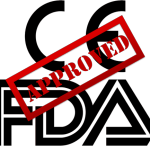The “regulatory affairs” section comprises over 200 tasks that need to be completed during the development and approval of medical devices.
Here, you will find an overview of the most essential content so that you can get your device approved quickly.
Content
On this page, you will find articles on the following topics:
- What regulatory affairs is
- Regulatory requirements
- Authorization and documentation
- Authorities, institutions, and associations
- Further topics of regulatory affairs
1. What regulatory affairs is
Regulatory affairs comprises the processes and activities that ensure that medical devices meet the regulatory requirements of the countries where they are sold. This includes
- obtaining the necessary approvals from the regulatory authorities,
- compliance with applicable regulations and standards, and
- maintaining conformity throughout the entire product life cycle until decommissioning.
The tasks of regulatory affairs also include monitoring changes to regulations and standards and communicating these changes to stakeholders within the company to ensure continuous compliance.
Regulatory affairs thus plays a crucial role in ensuring that medical devices are safe, effective, and comply with legal requirements.
Further information
Refer also to the article on regulatory affairs managers’ tasks, competencies, and earning potential. This includes the task of developing a regulatory strategy.
2. Regulatory requirements
a) Germany
| Laws |
Medical Devices Law (no longer valid)
Medical Devices Implementation Act MPDG |
| National regulations |
Medical Device Operator Ordinance (Medizinprodukte-Betreiberverordnung – MPBetreibV)
Medical Device User Notification and Information Ordinance (Medizinprodukte-Anwendermelde- und Informationsverordnung – MPAMIV) |
b) Europe
c) USA
d) Other markets
3. Approval and documentation
a) Approval
Find more information on international approval
b) Qualification and classification (How should my device be classified?)
c) Technical documentation (What do I need to document for each device?)
d) Quality management (What should your company fulfill?)
Quality management is not usually the responsibility of regulatory affairs. Nevertheless, we have listed some important articles for you.
e) Regulatory Roles
There are several expert articles on regulatory roles:
4. Authorities, institutions, and associations
a) Germany
b) Europe
c) International
| IMDRF: International Medical Device Regulators Forum |
5. Regulatory affairs: Further topics
The tasks of Regulatory Affairs also include finding and eliminating deviations and non-conformities. The (emergency) elimination is called remediation.
Note the advantages and disadvantages of Regulatory Information Management Systems (RIMS) and their role in manufacturers’ digital transformation.
Part of the tasks of regulatory affairs is regulatory intelligence.
Do you need support?
Do you still have questions, for example, about the approval of your devices? Then, take advantage of our free micro-consulting service.
If you would like support in developing and “approving” your medical devices in compliance with the law, contact us right away. The Johner Institute team will be happy to help!
The parameterization of software – in this context, we can also talk about customizing or configuring software – often leads to discussion, e.g., regarding responsibilities and the differentiation to in-house production. This article gives manufacturers and their customers important advice on what to look out for when parameterizing software and how to avoid the usual pitfalls.
Details
On November 21, the Johner Institute, together with TÜV SÜD, TÜV Nord, and with the support of Dr. Heidenreich (Siemens), published a guideline on IT security specifically for medical device manufacturers.
The FDA offers manufacturers the opportunity to use so-called recognized consensus standards for the approval of their devices. The US authority has published a “guidance” document on these consensus standards, presented in this article. It also describes the requirements for using the standards and the advantages for manufacturers, but also points out typical mistakes.
Details
The EU General Data Protection Regulation must be complied with starting at 25 May 2018, at the latest. Many companies, amongst them also medical device manufacturer and operators such as hospitals, are not adequately prepared. This article gives you a review of the main concepts and requirements of the General Data Protection Regulation and examines…
Details
Medical device manufacturers are obliged to observe and comply with legal retention periods for documents and records. This article provides an overview of the regulatory requirements for the retention periods for the various document classes.
Details
This article describes the requirements of the in vitro diagnostic medical device regulation (IVDR) for software development and documentation. The requirements apply to software that is part of an IVD (embedded software) and to software that is an IVD itself (“standalone” software). This article also compares the software requirements of the MDR and the IVDR.
Details
Unannounced audits are random sampling checks of the quality management systems by notified bodies with the aim of Initial experience with unannounced audits is now available.
Details
The Health Breach Notification Rule defines when health records providers have to report which security issues to whom, within what time frame and in what form. This article provides a brief overview of the requirements of the US Federal Trace Commission (FTC).
The Federal Trade Commission (FTC) is an US agency that aims to ensure compliance with competition law and consumer protection. This article explains the circumstances that require you (e.g., as a medical device manufacturer) to comply with the FTC requirements and the specifics of these requirements. The case of Lumosity shows how radically the FTC…
Details
The FDA MAUDE database provides information on the “Manufacturer and User Facility Device Experience.” It thus corresponds roughly to the database used by the BfArM to publish manufacturer reports on risks.
